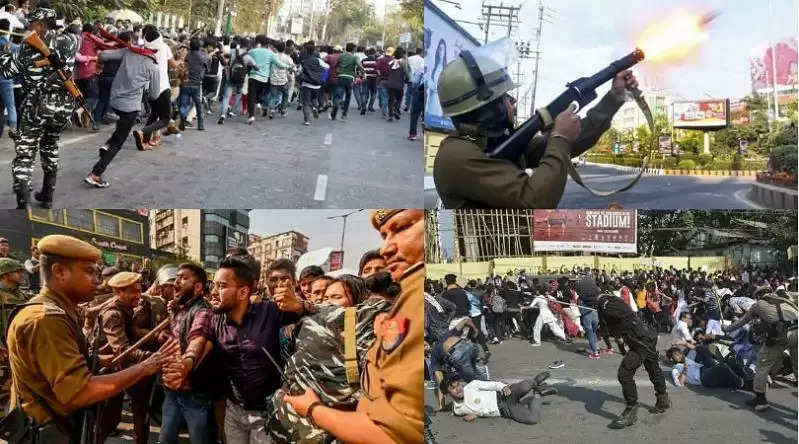EDITORIAL | One year and on, anti-CAA temper prevails in Assam

FROM THE EDITOR’s DESK:
The anti-Citizenship Amendment Act (CAA) agitation is far from over in India’s Northeast region as social organisations are still apprehensive about the applicability of this act.
This act was passed by both houses of the parliament in December 2019. When the bill was introduced in the parliament last year by Home Minister Amit Shah, the northeast witnessed mass protests against the bill which they said would turn the region into a dumping ground for illegal immigrants.
The northeast has seen its fair share of growth in the number of illegal immigrants and Tripura is an example of this swift change in the demography.
Fearing that the indigenous communities of the northeast would be overrun by immigrants, the social organisations across the region joined hands to condemn the bill (now an act) and, protests are ongoing to pressurise the Centre to repeal the act.
While the protest against CAA is ongoing in Meghalaya, the same will kick start in Assam from December 24, where over 70 organisations led by the Krishak Mukti Sangram Samiti (KMSS) will carry out a statewide movement which will centre around the rural areas of Assam.
ALSO READ:
Also Read: EDITORIAL | Is there a possibility for Meghalaya to get ILP?
While the All Assam Students’ Union (AASU), that was not included in the list of the 70 organisations, will resume its agitation from January next year. AASU had stopped the protests in between due to the COVID-19 pandemic.
Why is the CAA controversial?
The CAA amends the Citizenship Act of 1955 to grant a swifter path to Indian citizenship under the assumption of religious persecution to any individual belonging to the specific minorities of Hindus, Sikhs, Buddhists, Jains, Parsis and Christians from Afghanistan, Bangladesh and Pakistan, who entered India on or before 31st December 2014.
The act also seeks to relax the requirement of residence in India for citizenship by naturalisation from 11 years to 5 years for migrants covered under the act.
Why is the Northeast apprehensive?
The revised version of the bill has exempted certain areas in the region like the tribal areas of Assam, Meghalaya, Mizoram or Tripura as they are included in the Sixth Schedule to the Constitution and states covered under the purview of the 'Inner Line Permit' (ILP) like Arunachal Pradesh, Nagaland and Mizoram with Manipur being the latest northeastern state to be covered under ILP.
While these exemptions have managed to calm down other areas of Northeast, Assam, on the other hand, witnessed massive protests last year, especially in the Brahmaputra valley.
Though the BJP tried to pacify the angry citizens in an attempt to sell the bill by projecting as a strategy to protect the Hindu identity of Assam against an influx of Muslims from Bangladesh, the indigenous people of the state, however, were not convinced as they fear dilution of cultural and traditional practices.
The same can be said for other states in the Northeast.
ALSO READ:
Also Read: The Indestructible Tarun Gogoi & the Art of Assam Politics
ALSO WATCH:

















